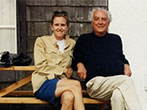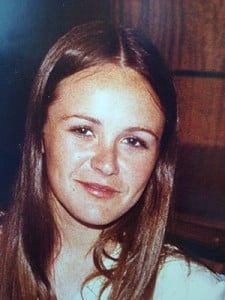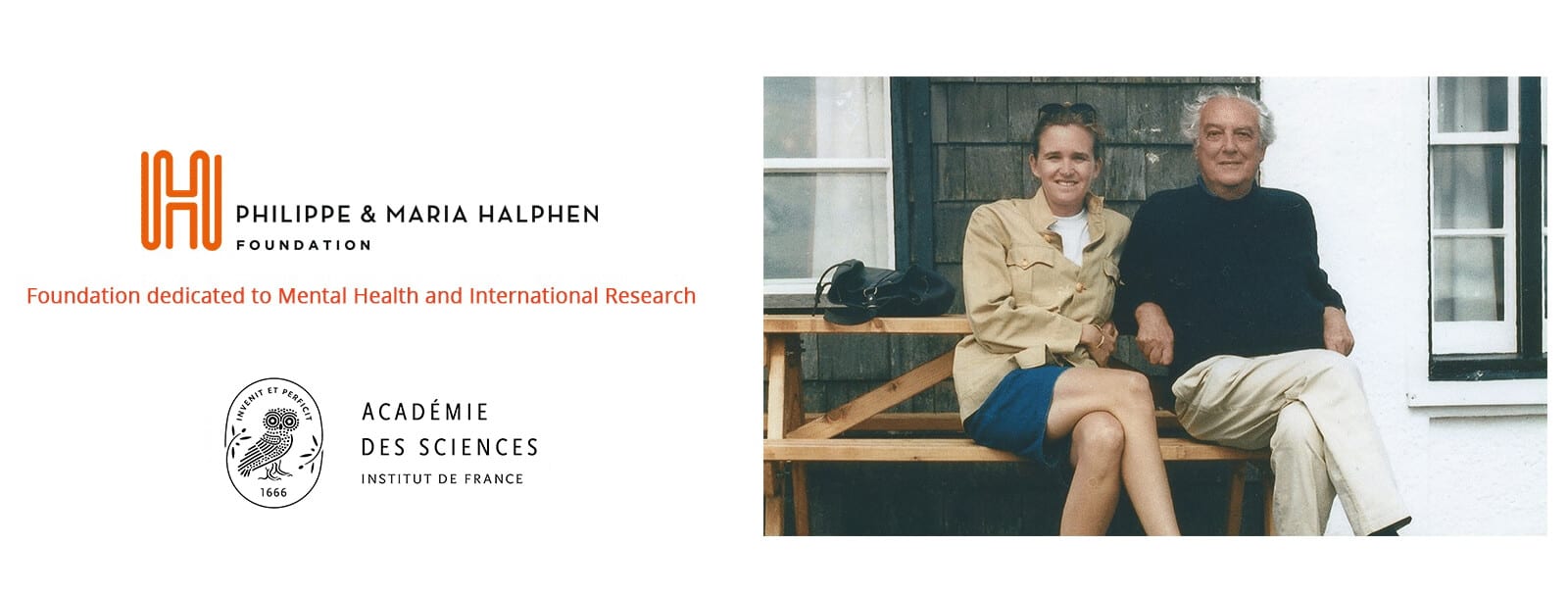Home
ABOUT US
THE PHILIPPE & MARIA HALPHEN FOUNDATION
Maria Halphen was born in Sweden. Her parents moved to Australia when she was nine. At the age of seventeen, she returned to Europe and settled in France, where she studied theatre production alongside her uncle, Lars Schmidt.
Maria married Philippe Halphen, a French journalist and television documentary director. When Philippe Halphen passed away in 2010, Maria returned to Australia to be with her mother.
 Maria founded the Philippe & Maria Halphen Foundation in 2013 in memory of her late and beloved husband, Philippe.
Maria founded the Philippe & Maria Halphen Foundation in 2013 in memory of her late and beloved husband, Philippe.
IT STARTED WITH FRIENDS…
Maria Halphen and Susie Hincks had been close friends for a long time. As often happens in life, they lost touch but, while Maria was visiting her mother in Australia in 2011, they bumped into each other again. As they caught up with each other’s lives, Maria learned of Susie’s on-going struggle with schizophrenia and was devastated when Susie confessed that she’d lost most of her “twenties” to mental illness.
STIGMA – IGNORANCE AND FEAR
The very same year Maria and Susie with the help of Hon Keith Wilson created in Australia Meeting for Minds, facilitating meetings between people living with mental illness, families and those researching into the brain and disorders of the brain.
In 2016 Meeting for Minds was also established in Switzerland.
SUSIE HINCKS’ STORY
I was convinced I was being watched, that there was a camera in my bathroom filming me and that people were sending me threatening messages through television and radio advertisements. I was afraid to go outside during the day. I effectively cut myself off from the rest of the world.
 Susie was diagnosed with a mild form of schizophrenia when she was 28 years old. Unlike many people with schizophrenia, Susie didn’t hear voices however her illness was a lonely and isolating one, in which she suffered from paranoia, delusions and depression. Her illness manifested itself in a lack of attention to her personal hygiene, a debilitating loss of motivation and withdrawal from everyone and everything.
Susie was diagnosed with a mild form of schizophrenia when she was 28 years old. Unlike many people with schizophrenia, Susie didn’t hear voices however her illness was a lonely and isolating one, in which she suffered from paranoia, delusions and depression. Her illness manifested itself in a lack of attention to her personal hygiene, a debilitating loss of motivation and withdrawal from everyone and everything.
Of course, her parents attempted to help her deal with her illness. They took her to two general practitioners where she was diagnosed with depression, however a lack of follow-up only exacerbated the issue.
Back in her flat, socially isolated, Susie rarely cooked or showered and cigarettes became her “best friends”. In fact, Susie says she lost most of her “twenties” during this devastating period.
A chance meeting with a stranger and Susie’s subsequent disappearance from her home for three weeks caused her family immense worry. She was discovered wandering the streets by police who, fortunately, identified her as a missing person. She was taken to an emergency psychiatrist who examined her and then released her – armed with a care/support plan.
I had a total lack of insight which underpinned my self-denial about my condition. I refused to take my medication, so my illness slowly, gradually, became worse. Very fortunately, my mother met a consultant psychiatrist at the Association of Relatives and Friends of the Mentally Ill. This was the critical intervention which led to my involuntary commitment to Graylands Hospital – actually under police escort.
Having been emotionally isolated from family and friends for years, Susie was now finally in an institution where help was readily available.
But, like many people with a mental illness, I refused to take medication. At Graylands, I was given tablets which I would put under my tongue and then spit out in the bathroom. This is very common behaviour. The nurses soon realised what I was doing so I was given liquid medication. My mother visited me every day. After a few days of medication, she couldn’t believe the change in me – I could sit down with her and have a proper conversation, something I hadn’t been able to do for years! I responded well to the medication: my paranoia and delusions were gone and I had more motivation. After years of suffering, I spent five short weeks in hospital and I found myself on the road to recovery.
These days I take a low dose of an anti-psychotic called Abilify and anti-depressants. This regime keeps me relatively stable. I still have problems with motivation and the drugs do ‘flatten’ me a bit but, compared with some people with mental illness who do not respond to any medication, I consider myself lucky.
Susie has the support of her family and friends at and is a passionate believer in research as a means to delivering hope to those in need. Totally convinced that education and humanisation are paramount in changing public perception of mental illness and reducing the stigma associated with it, Susie has spent much time in recent years speaking publicly at universities, schools, community meetings and mental health forums. She has been a Consumer Advisory Advocate at Avro Clinic in Subiaco and is currently a consumer representative for the Centre for Clinical Research in Neuropsychiatry based at Graylands Hospital.
Who Are We ?
THE BOARD
- Maria HALPHEN – Founder of the Philippe & Maria Halphen Foundation
- Jerome FLIPO – Vice President, Senior Underwriter
- Anne-Sophie PLOUHINEC – Jurist, Administrator of the Foundation
- Antoine TRILLER – Secrétaire perpétuel de l’Académie des sciences
- Pr. Michel LE MOAL – Member of the Académie des sciences
- Pr. Yves AGID – Member of the Académie des sciences
THE SCIENTIFIC COMMITTEE
- Antoine TRILLER, Secrétaire perpétuel de L’Académie des sciences, Paris
- Pr. Ian HICKIE – Director of the BMRI, Sydney
- Pr. Yves AGID – Former scientific director, Co-founder of the ICM, Paris
- Pr. Norman SARTORIUS – President of the Association for the Improvement of Mental Health Programs, Geneva
- Mrs Yanne NORUP, Representative of the Philippe and Maria Halphen foundation, Geneva, Switzerland
- Pr. Michel Le MOAL, Member of the French Académie des sciences, Paris
- Pr. Raphaël GAiLLARD, Neuroscientist, Director of the academic institution at Sainte-Anne Hospital, Paris
THE TEAM
- Muriel BLEUSE – Coordination and development
- Marie DE LESPARDA – Press Relations
THE HONORARY COMMITTEE
- Elisabeth de FONTENAY – Philosopher
- Asya ROLLS – Assistant Professor, Rappaport Faculty of Medicine, Technion, Israel Institute of Technology, Haifa, Israel
Foundation Objectives And Strategies
OBJECTIVES
THE FOUNDATION UNDERSTANDS THAT PROGRESS WILL BE CONTINGENT ON A DYNAMIC INTERCHANGE OF KNOWLEDGE AND IDEAS BETWEEN RESEARCH SCIENTISTS, CLINICIANS AND THOSE WITH A LIVED EXPERIENCE OF MENTAL ILLNESS – PATIENTS, FAMILIES AND CARERS.
- Collaboration
The Philippe & Maria Halphen Foundation’s long-term goal is to improve the understanding of the human brain, in both health and disease. It will do this by fostering and facilitating ongoing collaborative research into mental health, to hasten the successful translation of new discoveries into innovative and effective treatments and therapies. - Communication
The Philippe & Maria Halphen Foundation is dedicated to growing genuine communication between all those with a stake in mental health – researchers, clinicians, those with lived experience of mental illness and like minded foundations. - Education and Awareness
The Philippe & Maria Halphen Foundation is committed to the eradication of the stigma that surrounds mental illness. This debilitating stigma will only ever pass if we as a community participate in growing the understanding that mental ill-health is no different to physical ill-health. In this respect, neuroscientist and clinicians have a profound understanding of the complexity of the human brain who can help reduce the stigma of mental illness.
STRATEGIES
THE PHILIPPE & MARIA HALPHEN FOUNDATION MEETS ITS OBJECTIVES BY:
- Recompensating excellent work through the Philippe & Maria Haphen Prize every
- Creating and organizing events, or promoting existing associations to all of which address mental health issues. It will be a feature of these events that they are open to the general public (For instance: the Meeting for Minds forums and activities).
- Providing opportunities to young researchers from around the world to broaden their horizons and explore new directions for treating and preventing mental illness through interdisciplinary and international collaboration.
- Encouraging methods and discussions between neuroscientists around current developments in neuroscience (molecular, genetic, epigenetic, imaging etc.).
« La santé mentale a un coût majeur pour nos sociétés. Coût humain tout d’abord, avec notamment 1 million de suicides par an, dont 10 000 en France. Coût économique également, représentant 580 milliards d’euros en 2010 en Europe. Avec une prévalence de 1% pour les schizophrénie, 2 ou 3% pour les troubles bipolaires et 20% sur vie entière pour la dépression, toute personne ou presque a dans sa famille ou ses proches, en l’ignorant parfois, une personne souffrant d’une pathologie mentale. Pourtant ces pathologies restent l’objet de stigma, et ne bénéficient pas d’une recherche médicale et scientifique à la hauteur de ces enjeux.
La Fondation Philippe et Maria Halphen a l’objectif de confronter les points de vue sur les maladies mentales, dans une perspective résolument internationale, au travers de la France, de l’Australie et d’Israël. C’est grâce à ce type d’initiative que nous verrons les pouvoirs publics répondre aux enjeux de la santé mentale, et que les efforts unis des psychiatres, des chercheurs, des patients et de leurs associations porteront leurs fruits. »
Raphaël Gaillard,
Professeur de psychiatrie à l’Université Paris Descartes, chercheur en neurosciences cognitives et responsable du pôle hospitalo-universitaire de santé mentale et de thérapeutique, Hôpital Sainte-Anne






